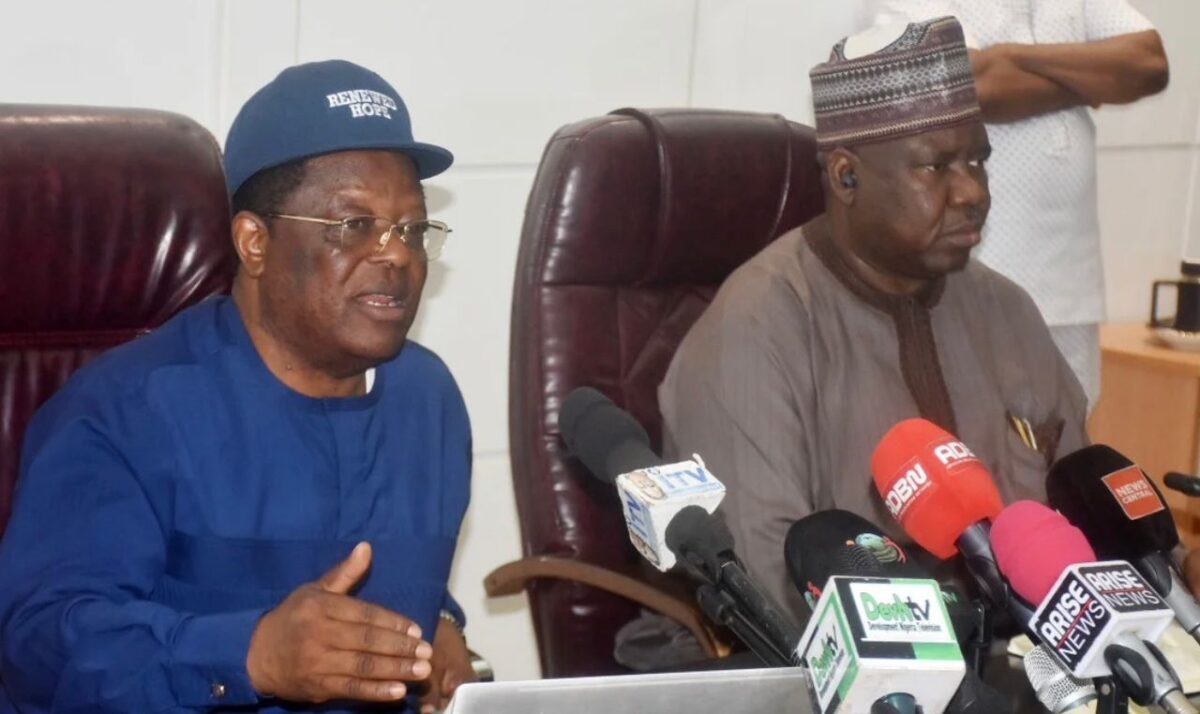Nigeria’s economy under Buhari worse than 10 years ago: World Bank

The World Bank has again noted that Nigeria’s economy under the Muhammadu Buhari administration is worse than 10 years ago.
These findings are contained in its flagship report for 2022, titled ‘Global Economic prospect’.
“The pandemic has reversed at least a decade of gains in per capita income in some countries—in almost a third of the region’s economies, including Angola, Nigeria, and South Africa, per capita incomes are forecast to be lower in 2022 than a decade ago,” the report said.
The report added that the hike in food prices could amplify the negative impact of increased poverty on economic growth, noting nearly 110 million people in countries like Nigeria, the Democratic Republic of Congo, Ethiopia, and South Sudan had been in situations characterised by food crises.
The report also mentioned that disruptions to the supply chains or armed conflicts could contribute to surges in food prices, leaving vulnerable groups suffering the most.
“Further rise in food prices would squeeze households’ purchasing power and erode consumer confidence, causing more subdued growth and hindering poverty reduction,” the report stressed.
The findings from the global bank corroborate a study published by the Economic Community of West African States (ECOWAS), which revealed that many people living on less than $1.90 a day had jumped from 2.3 per cent to 2.9 per cent in 2021, and the debt burden of countries increased amid slow economic recovery, shrinking fiscal space and weak resource mobilisation.
Last year, the global bank had heavily criticised Mr Buhari’s fiscal policies, noting the negative effect of Nigeria’s Central Bank exchange rate policies on investments and fuel inflation.
However, the World Bank predicts that Nigeria’s economy will grow by 2.5 per cent in 2022, as it will benefit from an increase in oil prices, a gradual easing of the Organisation of the Petroleum Exporting Countries (OPEC) production cuts, and other domestic regulatory reforms.
We have recently deactivated our website's comment provider in favour of other channels of distribution and commentary. We encourage you to join the conversation on our stories via our Facebook, Twitter and other social media pages.
More from Peoples Gazette

Politics
Katsina youths pledge to deliver over 2 million votes to Atiku
“Katsina State is Atiku’s political base because it is his second home.”

Education
Whitney Adeniran: Court to rule on admissibility of evidence May 2
Counsel to Chrisland School (fifth defendant), Ajibola Ariba, argued that the evidence must be relevant to the issue.

Politics
Kaduna lawmakers, El-Rufai’s son Bello fight over father’s multimillion-dollar corruption probe
Kaduna lawmakers described Mr El-Rufai’s behaviour as “erratic.”

Agriculture
FG donates 100,000 doses of anthrax vaccines to Ekiti
The Federal Ministry of Agriculture and Food Security has donated 100,000 doses of anthrax vaccines to the Ekiti government.

Opinion
Azu Ishiekwene: Is World War III coming?
Global institutions expected to keep the fragile balance for peace have almost all broken down, and all five veto-wielding members of the UN have gone rogue.

States
Lagos-Calabar Highway: FG inaugurates committee to compensate property owners
The Minister of Works, David Umahi, inaugurated the committee in Abuja and said the goal was to ensure transparency in all undertakings.

Education
Tinubu’s Student Loan Scheme: 1.2 million youths in first batch of beneficiaries
“The school fee will be paid to the institution on behalf of the student and the stipend directly to student’s account,” NELFUND said.








